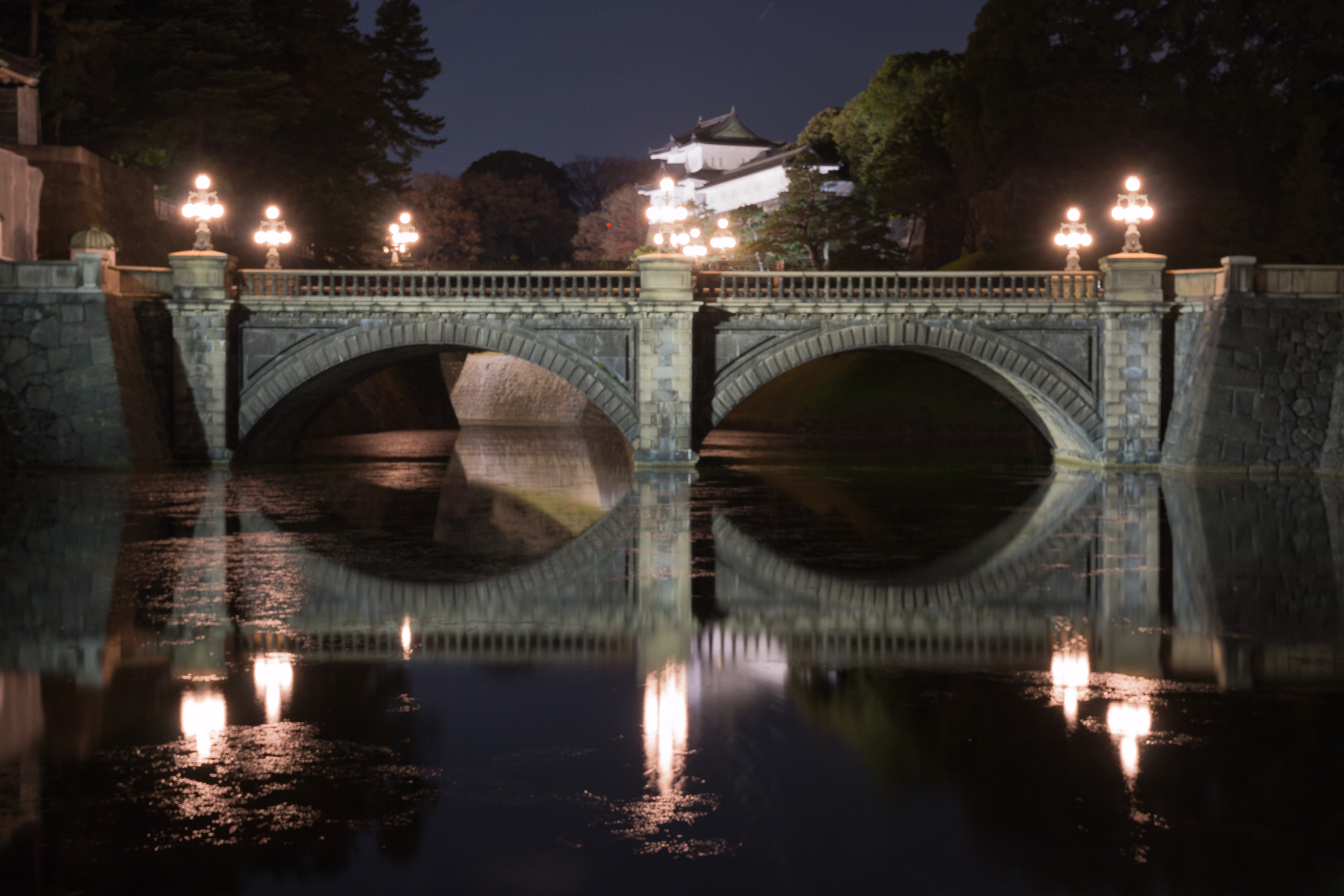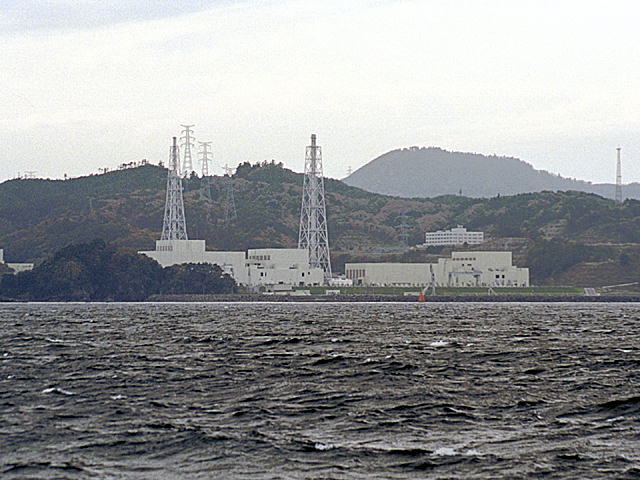|
Federation Of Electric Power Companies
The , (FEPC), is an industry organization of electric utilities in Japan. Its objective is to harmonize the plans for electric development in Japan. Its main offices are located in Chiyoda, Tokyo. History * November 1952: Founded by a group of 9 electric power companies (Hokkaido, Tohoku, Tokyo, Chubu, Hokuriku, Kansai, Chukoku, Kyushu) * March 2000: The Okinawa Electric Power Company joined. See also * Energy in Japan * Nuclear power in Japan External links * Nuclear power companies of Japan Electric power companies of Japan Electric Electricity is the set of physical phenomena associated with the presence and motion of matter that has a property of electric charge. Electricity is related to magnetism, both being part of the phenomenon of electromagnetism, as described b ... Organizations based in Tokyo {{Japan-org-stub ... [...More Info...] [...Related Items...] OR: [Wikipedia] [Google] [Baidu] |
Japan
Japan ( ja, 日本, or , and formally , ''Nihonkoku'') is an island country in East Asia. It is situated in the northwest Pacific Ocean, and is bordered on the west by the Sea of Japan, while extending from the Sea of Okhotsk in the north toward the East China Sea, Philippine Sea, and Taiwan in the south. Japan is a part of the Ring of Fire, and spans an archipelago of 6852 islands covering ; the five main islands are Hokkaido, Honshu (the "mainland"), Shikoku, Kyushu, and Okinawa. Tokyo is the nation's capital and largest city, followed by Yokohama, Osaka, Nagoya, Sapporo, Fukuoka, Kobe, and Kyoto. Japan is the eleventh most populous country in the world, as well as one of the most densely populated and urbanized. About three-fourths of the country's terrain is mountainous, concentrating its population of 123.2 million on narrow coastal plains. Japan is divided into 47 administrative prefectures and eight traditional regions. The Greater Tokyo Ar ... [...More Info...] [...Related Items...] OR: [Wikipedia] [Google] [Baidu] |
Chiyoda, Tokyo
is a Special wards of Tokyo, special ward located in central Tokyo, Japan. It is known as Chiyoda City in English language, English.Profile ." ''City of Chiyoda''. Retrieved on December 28, 2008. It was formed in 1947 as a merger of Kanda, Tokyo, Kanda and Kōjimachi wards following Tokyo City's Local Autonomy Act, transformation into Tokyo Metropolis. The modern Chiyoda ward exhibits contrasting Shitamachi and Yamanote geographical and cultural divisions. The Kanda area is in the core of Shitamachi, the original commercial center of Edo-Tokyo. On the other hand, the western part of the Kōjimachi area typically represents a Yamanote district. Chiyoda consists of the Tokyo Imperial Palace, Imperial Palace and a surrounding radius of about a kilometer. As of October 2020, the ward has a p ... [...More Info...] [...Related Items...] OR: [Wikipedia] [Google] [Baidu] |
Okinawa Electric Power Company
, OEPC or for short, is an electric utility with its exclusive operational area of Okinawa Prefecture is a prefecture of Japan. Okinawa Prefecture is the southernmost and westernmost prefecture of Japan, has a population of 1,457,162 (as of 2 February 2020) and a geographic area of 2,281 km2 (880 sq mi). Naha is the capital and largest cit ..., Japan. It is the smallest by electricity sales among Japan’s ten regional power utilities, indeed, its electricity sales is approximately 1⁄40 of that of The Tokyo Electric Power Company, though it is the largest by revenue among companies headquartered in Okinawa. References Companies listed on the Tokyo Stock Exchange Electric power companies of Japan Companies based in Okinawa Prefecture Public utilities established in 1972 Japanese companies established in 1972 Energy companies established in 1972 {{Japan-company-stub ... [...More Info...] [...Related Items...] OR: [Wikipedia] [Google] [Baidu] |
Energy In Japan
Energy in Japan refers to energy and electricity production, consumption, import and export in Japan. The country's primary energy consumption was 477.6 Mtoe in 2011, a decrease of 5% over the previous year. The country lacks significant domestic reserves of fossil fuel, except coal, and must import substantial amounts of crude oil, natural gas, and other energy resources, including uranium. Japan relied on oil imports to meet about 84 percent of its energy needs in 2010. Japan was also the first coal importer in 2010, with 187 Mt (about 20% of total world coal import), and the first natural gas importer with 99 bcm (12.1% of world total gas import).IEA Key World Energy Statistic2011201020092006 IEA October, crude oil p.11, coal p. 13 gas p. 15 As of 2019, 88% of Japan's power was produced by fossil fuels. On 22 October 2021, Japan declared its intention to reduce carbon emissions to 50% of that in 2013 by 2030 and achieve carbon neutrality by 2050. Japan produced 1004. ... [...More Info...] [...Related Items...] OR: [Wikipedia] [Google] [Baidu] |
Nuclear Power In Japan
Prior to the 2011 Tōhoku earthquake and tsunami, Japan had generated 30% of its electrical power from nuclear reactors and planned to increase that share to 40%. Nuclear power energy was a national strategic priority in Japan. , of the 54 nuclear reactors in Japan, there were 42 operable reactors but only 9 reactors in 5 power plants were actually operating. A total of 24 reactors are scheduled for decommissioning or are in the process of being decommissioned. Others are in the process of being reactivated, or are undergoing modifications aimed to improve resiliency against natural disasters; Japan's 2030 energy goals posit that at least 33 will be reactivated by a later date. Though all of Japan's nuclear reactors successfully withstood shaking from the Tohoku earthquake, flooding from the ensuing tsunami caused the failure of cooling systems at the Fukushima I Nuclear Power Plant on 11 March 2011. Japan's first-ever nuclear emergency was declared, and 140,000 residents w ... [...More Info...] [...Related Items...] OR: [Wikipedia] [Google] [Baidu] |
Nuclear Power Companies Of Japan
Nuclear may refer to: Physics Relating to the nucleus of the atom: * Nuclear engineering *Nuclear physics *Nuclear power *Nuclear reactor *Nuclear weapon *Nuclear medicine *Radiation therapy *Nuclear warfare Mathematics * Nuclear space * Nuclear operator * Nuclear congruence * Nuclear C*-algebra Biology Relating to the nucleus of the cell: * Nuclear DNA Society *Nuclear family, a family consisting of a pair of adults and their children Music * "Nuclear" (band), group music. * "Nuclear" (Ryan Adams song), 2002 *"Nuclear", a song by Mike Oldfield from his '' Man on the Rocks'' album * ''Nu.Clear'' (EP) by South Korean girl group CLC See also * Nucleus (other) *Nucleolus * Nucleation *Nucleic acid Nucleic acids are biopolymers, macromolecules, essential to all known forms of life. They are composed of nucleotides, which are the monomers made of three components: a 5-carbon sugar, a phosphate group and a nitrogenous base. The two main ... * Nucular * * { ... [...More Info...] [...Related Items...] OR: [Wikipedia] [Google] [Baidu] |
Electric Power Companies Of Japan
Electricity is the set of physical phenomena associated with the presence and motion of matter that has a property of electric charge. Electricity is related to magnetism, both being part of the phenomenon of electromagnetism, as described by Maxwell's equations. Various common phenomena are related to electricity, including lightning, static electricity, electric heating, electric discharges and many others. The presence of an electric charge, which can be either positive or negative, produces an electric field. The movement of electric charges is an electric current and produces a magnetic field. When a charge is placed in a location with a non-zero electric field, a force will act on it. The magnitude of this force is given by Coulomb's law. If the charge moves, the electric field would be doing work on the electric charge. Thus we can speak of electric potential at a certain point in space, which is equal to the work done by an external agent in carrying a unit of p ... [...More Info...] [...Related Items...] OR: [Wikipedia] [Google] [Baidu] |
Federations
A federation (also known as a federal state) is a political entity characterized by a union of partially self-governing provinces, states, or other regions under a central federal government (federalism). In a federation, the self-governing status of the component states, as well as the division of power between them and the central government, is typically constitutionally entrenched and may not be altered by a unilateral decision, neither by the component states nor the federal political body. Alternatively, a federation is a form of government in which sovereign power is formally divided between a central authority and a number of constituent regions so that each region retains some degree of control over its internal affairs. It is often argued that federal states where the central government has overriding powers are not truly federal states. For example, such overriding powers may include: the constitutional authority to suspend a constituent state's government by in ... [...More Info...] [...Related Items...] OR: [Wikipedia] [Google] [Baidu] |


